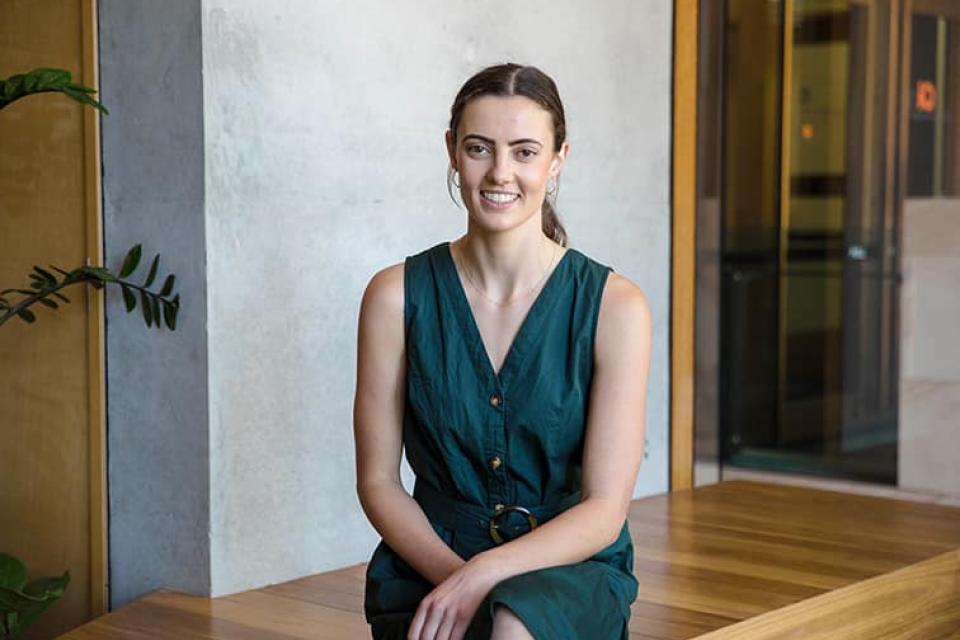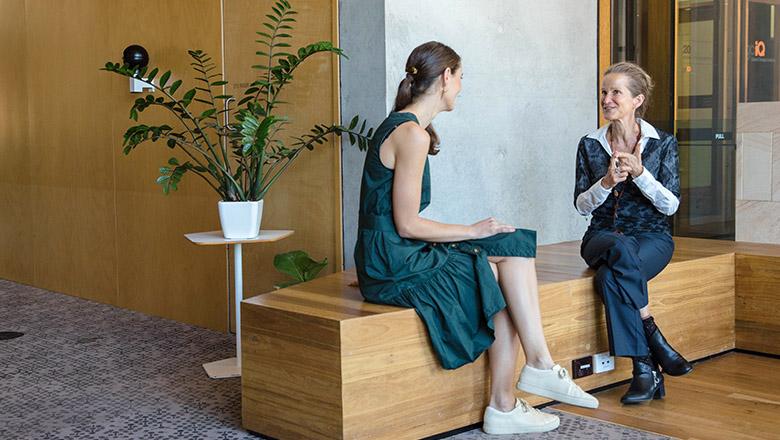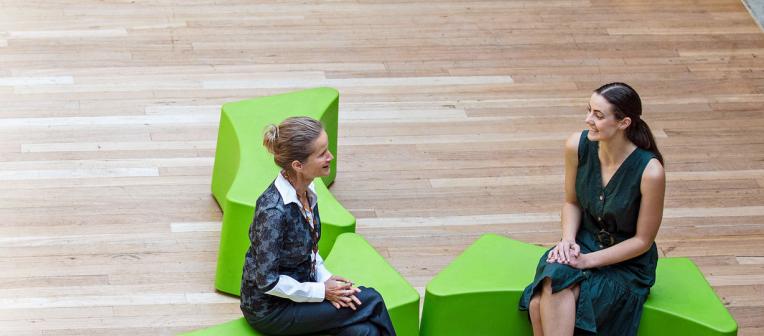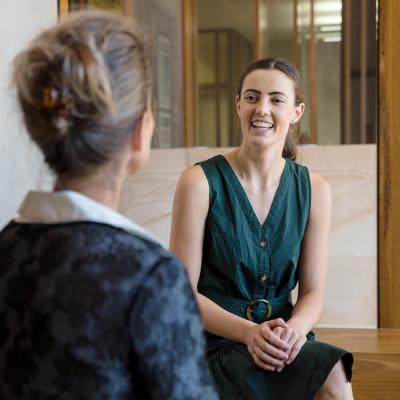Choosing a nutrition PhD topic doesn’t paint you into a corner. It’s a growth experience that allows you to test boundaries and refine skills.
Naomi Fitzpatrick is here to tell you that you don’t need your life mapped out 10 or 20 years in advance. You don’t have to feel born into a profession or have absolute certainty about where you're headed.
Unlike others firmly committed to a singular study path, Naomi still sees a world of opportunity ahead of her, despite currently focusing on a PhD at UQ which investigates relationships between specific nutrients and eyesight problems. She's conducting new macular degeneration research, but that doesn't define her or her future.
“If you’d asked me as an undergraduate, or even in my first years of master's, whether I’d be pursuing the research avenue, I definitely wouldn’t have predicted it,” Naomi says.
“The way the research works in the second year of the Master of Dietetics Studies… if you complete that it means a PhD is available to you if you desire. It’s my natural tendency to keep my options open, which was my primary reason for taking it on, not necessarily because I definitely wanted to do a PhD."
“As a new grad you want to take any and all opportunities that come your way and it wasn’t until a friend of mine also applied, a scholarship opened up and the interview process began that I started to think deeply about if this is what I wanted to do.”

Naomi's nutrition PhD mentor
Mentored by Dr Veronique Chachay in the School of Human Movement and Nutrition Sciences, Naomi is now conducting new research on macular degeneration that adds another consideration to the widespread problem.
With time on phones and in front of screens consuming a significant percentage of modern lifestyles, the prospect of incurring permanent damage is heightened. Investigating how certain foods or nutrients alter the eye’s response to that exposure has taken on added importance.
Veronique and Naomi openly confess to coming at some topics from different perspectives, but they say divergence of views is often the key to well-balanced research.
“Every week I receive between 7 and 15 messages from people telling me I’m a fantastic researcher and they’d like to conduct their PhD with me, but I am about quality, not quantity,” says Veronique.
“I want to be able to spend more time with PhD students and be challenged by what they propose, rather than spreading myself thin and only seeing things from one angle. In terms of having similar views on research topics, there are so many ways of looking at nutrition, so I try to keep an open mind."
"We have a common core interest, but it’s about learning to negotiate at the same time to arrive at the exact facet we will explore.”

How Naomi chose to study a PhD
Naomi knew Veronique from her previous study at UQ and was convinced the two could work together productively, despite any differences they may hold on theoretical matters.
“Because I had such a positive research experience during my masters, it set me up to think a PhD was a possibility for me,” Naomi explains.
“Coming out as newly graduated, some people know exactly where they want to go, whether that is clinical, hospital, community or even a subject area as specific as diabetes, but I hadn’t really figured that out. I’m a curious person and hadn’t nailed down one particular area. But I’d always liked the idea of helping a large number of people by studying a specialised topic that has the potential for wider impact.
“I took the opportunity with the PhD to do just that, and it may open other doors as I confirm my passion area. However, that may come with a little more experience and some time in the field.
“I’m not the typical person doing a PhD because it’s a definite pathway for the rest of my life, but it has been an interesting topic and it would have been silly to pass up such a great opportunity.”
Your research career begins here at UQ. Explore our scholarships or submit an expression of interest now.





